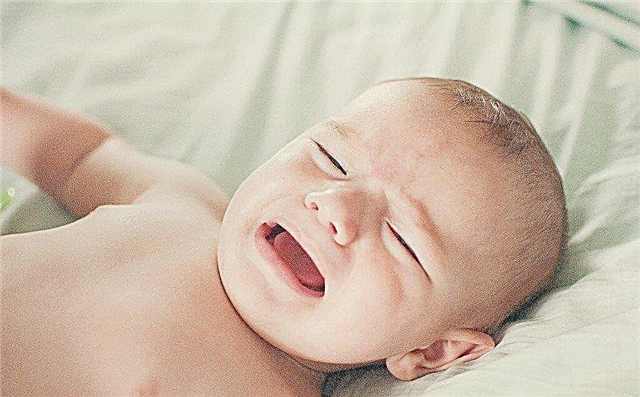
It is difficult to find a person who has never experienced a headache. It accompanies a great many illnesses - from flu to hypertension, but sometimes pain appears suddenly and just as suddenly disappears. Doctors do not detect any diseases in humans, and complaints of headache are, in fact, the only ones. In this case, attention should be paid to the psychosomatic causes of the malaise. We will talk about them in this material.

Features of pathology
Headache in medicine is called cephalalgia. This is an unpleasant condition that interferes with a normal life, work, study, rest, communication. When a person has a headache, it is difficult for him to concentrate, to remember something, to perceive.
This symptom is one of the most frequently mentioned in medical reference books. But as an independent phenomenon, cephalalgia, according to statistics, is observed in 17% of the world's population. This refers to precisely those situations when complaints of headache with a full medical examination do not find a physiological explanation, that is, the person is healthy. At the same time, about 7% of adults and children on the planet suffer from constant headaches (occurring more often 2 times a week), and another 10% of people report regular or episodic attacks. About 80% of cases of the total number of complaints of headache have psychosomatic grounds, and therefore are recognized as psychosomatic disorders.

In medicine, it is believed that headache in the absence of concomitant diseases, a symptom of which it can act, most often occurs due to:
- oppression of consciousness, depressive disorders and conditions, the prevalence of a gloomy, negative mood in a person;
- pungent odors that make a person change the rhythm of inhalation and exhalation;
- meteosensitivity (almost 43% of adults and more than 80% of children are highly sensitive to changes in weather and atmospheric pressure);
- excessive loads (physical and mental) - a large number of trainings, running, walking, professional sports, intensive study, intellectual work;
- low physical activity (a sedentary lifestyle and physical inactivity not only contribute to a set of extra pounds, but also affect the speed of blood circulation, increase the likelihood of developing oxygen starvation of organs, including the brain);
- stress and malnutrition, metabolic disorders;
- bad habits;
- loud noise;
- lack of sleep and excess sleep.
In traditional medicine, with constant headaches, it is recommended to eliminate all harmful factors, rest, change of scenery, vitamins and the absence of stress.

Psychosomatic causes
At the junction of medicine and psychology, there is a special branch of science - the psychosomatic direction, or simply psychosomatics. She considers a disease or individual symptom in close connection with the psychological, emotional and mental state of a person. The data are drawn from the long-term observations of psychoanalysts and psychotherapists, carefully verified by physiologists and therapists.
In psychosomatics, headache is regarded as a violation of the perception of the world. This mechanism is in many ways similar to the mechanism of the development of an allergic reaction.
The human body has antibodies to something that it encounters from time to time or regularly in the outside world. When such a "collision" occurs, a headache immediately starts. And it does not depend on age, gender, nationality. There is an irritating factor (let's call it an allergen) - there is a reaction. No factor - no reaction, the person feels good.
Such psychological "allergens" are most often the stress that people experience in very specific situations.
- Dissatisfaction with the world and their place in it, the feeling that the world does not accept, repulses and constantly deprives (“others have this and that, but I have nothing,” “I am not worthy of this”).
- The need to dissemble, deceive, hypocrite. Some lie, as they breathe, easily and naturally, but in most people in a situation where they need to lie, stress hormones are produced that narrow the lumen of blood vessels, and therefore the brain begins to experience a lack of much-needed oxygen. The more often there is a need to cheat, the stronger the headache attacks can be, which start as soon as possible after the event.
- The need to talk and think a lot. This kind of "professional" headache is common for teachers and public speakers, as well as analysts, tax inspectors and leaders of large organizations. Wherever an intensive and tense thought process is required, the cost of an error in which is high, wherever a person needs to talk for a long time, there is a place for psychosomatic headaches.
- A headache is an alibi. There are situations when it is easier for a person to hide behind a headache than to do something or decide something. If you do not want to find a solution to the problem, a person simply creates for himself a good reason to go on sick leave, or simply, with a clear conscience, lie down on his favorite sofa and do nothing. This is how they hide behind a headache from unwillingness to solve personal problems (avoid sex), this way they avoid an unpleasant conversation that is long overdue.


In psychosomatics there is an answer to the question of who is more prone to headaches than others. Long-term observations of psychotherapists helped to reveal the psychological portrait of a typical classical patient suffering from cephalalgia. They claim that headache is a physical manifestation of internal tension that people who have certain problems with assessing the world experience from facing an annoying situation. In particular, most headache sufferers exaggerate their own importance. Their opinion of themselves is quite high, while in most cases it is unreasonably high.
They make no less high demands on the world, in particular, on the people around them. At the same time, they do not always voice the requirements, but only expect others to guess themselves and comply with them. But others have no idea what causes the very "allergic reaction" that manifests itself in a painful attack of headache.
Resentment against inconsiderate comrades-in-arms and compatriots is not all, aggression comes to the fore in the development of cephalalgia, which is involuntarily born when illusions are broken, but which rather intelligent and well-bred sufferers begin to diligently suppress.
The more aggression, the more effort it takes to hide it. The higher the tension inside, the more the head hurts.
People with chronic cephalalgia are very pedantic. They do not accept the very idea of chaos, do not allow it in life, try to control everything and always. If someone thoughtlessly violates their established order, this also causes a sharp negative reaction and headache. This does not mean that a person immediately rushes to scandal if someone moved his pen or cup to another place or did not put his shoes on the shelf after him. No, they are silent, crush aggression and disappointment inside, and after a couple of hours they lie with an unhappy look with a severe headache and complain that the pills do not help them.
It is noteworthy that people with a chronic course of cephalalgia often manipulate others with a headache: they demand to be quiet, not make noise, walk on tiptoes, bring them water, not upset them with negative behavior and information that they do not want to hear with unpleasant conversations. Well, who will refuse a sick person?

Children's cephalalgia
Children suffer from headaches not only when they are forced to suppress disappointment and aggression in themselves, but also when they try to suppress other strong emotions, which they still do not know how to experience internally. Joy that a child cannot share because of fear of being misunderstood, anxiety and fear that he is afraid to express to an adult, can also cause attacks of cephalgia with prolonged accumulation.
Often, children copy not only words and behavioral reactions from their own parents, but also the way they relate to others. This is how high conceit and exaggerated demands on others are adopted.
Children with the so-called excellent student's syndrome, who are accustomed to always and everywhere be the first, especially often suffer from headache attacks. If they are faced with a situation in which they won’t win, it causes a violent reaction, followed by a headache.
A child who adequately evaluates himself and from an early age is accustomed to respecting others, who is also trained to be independent for his age, usually does not know what a headache is, unless, of course, we are talking about flu, SARS or another ailment in which headache as a side symptom.

Treatment
If a person has a disease that the doctor knows how to treat, it seems unwise to refuse treatment. With a psychogenic headache, medicine, alas, cannot give a universal prescription, and taking painkillers every time you have a headache is criminal in relation to the liver and kidneys. But there is treatment and you should not refuse it. It consists in identifying and eliminating emotional stress.
Researcher Louise Hay argued that the surest way to get rid of head pain is to learn how to relax. Relaxation should not only be physical, muscular. You need to learn how to relax your inner world.
Canadian researcher Liz Burbo, who complements the table of psychosomatic illnesses pioneered by Louise Hay, argues that a child or adult with headaches has an excessive share of responsibility and criticality, and getting rid of them will help to quickly cope with cephalalgia. A severe headache is a clear signal from the body that the time has come to change something in its perception of the world and people, to leave everything as it is no longer possible. This is dangerous.


In each case, individual recommendations are needed, but the general advice of specialists in the field of psychotherapy looks like this.
- Learn to accept the world and the people who inhabit it, as they are in reality. The world and people don't have to live up to your expectations; eliminate expectations altogether. Just take it as it is.
- Give up total control - everyone is free to do what he likes, and not what you like.
- Bring the state of your own self-esteem to adequate, overestimated need to be somewhat "upset". It is difficult to do this on your own, ask for help from loved ones or contact a psychologist.
- Learn to show aggressive feelings and disappointments openly: smash dishes, a pillow, a stuffed toy, cry and swear aloud, go boxing or jogging, do whatever is convenient for you within the law so that aggressive feelings always find their way out as quickly as possible, save them and suppress - the sure way to a new attack of pain.
- Go swimming, come into contact with water more often, it reduces the natural aggressive potential.
When treating a child, psychocorrection of parents is needed.





